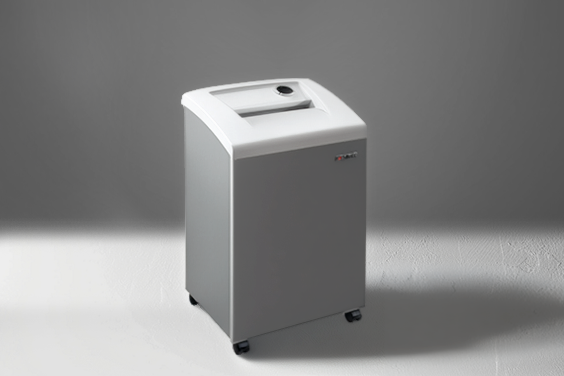Regular Shredders or Heavy-Duty Shredders: Making the Right Choice
In this digital-driven world, protecting sensitive information is more important. Whether it’s personal financial documents at home or confidential records in an office, shredders are essential tools to ensure data security and compliance. However, not all shredders are built the same. When choosing between a heavy-duty shredder and a regular shredder, understanding their key differences can help you pick the right machine for your needs.

1. Capacity and Workload
- Regular Shredder: Designed for light to moderate use, regular shredders are ideal for personal or small office tasks. They can typically handle 5–15 sheets of paper at a time.
- Heavy Duty Shredder: Built for continuous, large-scale shredding, these machines handle higher volumes of sheets per day. They can often process up to 50 sheets at once and operate for longer periods without overheating.
2. Durability and Build
- Regular Shredder: Made for occasional use, they have smaller motors and lighter blades. Overuse may lead to frequent jams or breakdowns.
- Heavy Duty Shredder: Equipped with stronger blades and powerful motors, they can handle tougher materials like credit cards, CDs, cardboard and thick stacks of paper. These machines are designed for durability and longevity.
3. Run Time and Cooling System
- Regular Shredder: Most personal shredders need to cool down after 2–5 minutes of continuous use to prevent overheating.
- Heavy Duty Shredder: These are engineered for extended operation, with run times of up to several hours, supported by advanced cooling systems.
4. Security Levels
- Regular Shredder: Provides basic strip-cut or cross-cut functionality, which works for routine shredding but lacks advanced protection.
- Heavy Duty Shredder: Offers higher levels of shredding such as micro-cut or particle-cut, ensuring compliance with strict data protection standards.
5. Noise Levels
- Regular Shredder: Processes documents with reduced noise and it great for home setups.
- Heavy Duty Shredder: Can be slightly louder due to higher power, though many modern models come with noise-reduction technology.
6. Cost and Investment
- Regular Shredder: Budget-friendly and perfect for occasional shredding needs.
- Heavy Duty Shredder: More expensive upfront, worth investment for businesses that deal with bulk paperwork or sensitive data daily.
Which One Should You Choose?
The right shredder ultimately depends on your usage. If you are working from home or only need to shred documents occasionally, a regular shredder provides compact, affordable and easy to maintain. However, if you run a business, deal with bulk paperwork on a daily basis, or need to comply with strict data protection standards, investing in a heavy-duty shredder is the smarter choice. It boosts productivity while delivering stronger protection and long-lasting reliability for safeguarding critical information.
Heavy-duty and regular shredders serve the essential purpose of safeguarding your information. The real difference is in capacity, durability, run time, and security level. By understanding your shredding needs, you can invest in the right shredder that balances performance, cost, and long-term reliability. BuddyUAE simplifies this choice by offering a wide selection of shredders designed for homes, offices and enterprises, ensuring you get the right fit for your security requirements.